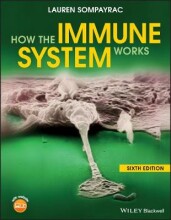Cancer treatment
11 important questions on Cancer treatment
What are the symptoms of cancer?
- Hoarseness (heesheid)
- Dysphagia (discomfort in swallowing)
- Complaints of the skin
- Feeling a tumor in the breast
- Feeling a tumor in the testicle
- Complaints with bowel movement
- Complaints with urinate
- Loss of weight
- Less appetite
- Bleeding
What is the staging of cancer: TNM-classifiaction
- T = size of tumor (T1-4)
- T1: very small
- T4: very large
- N = lymph nodes (N0-3)
- N0: no lymph node invasion
- N3: large lymph nodes
- M = distant metastases (M0-1)
- M0: no distant metastases
- M1: distant metastases, e.g. In lung, liver, bone (no cure for patients)
What are the two goals of treament
- chemotherapy as single treatment
- in combination with local treatment
- neo-adjuvant
- concomitant
- adjuvant
Palliation
- relief of complaints and/or a prolonged survival
- Higher grades + faster learning
- Never study anything twice
- 100% sure, 100% understanding
Why does chemotherapy not always work?
- Resistance
- low number of cell division
- low blood flow in tumor
- Intrinsic (cellular resistance)
- Adaptation (post Tx detoxification pathways)
What are the side effects of chemotherapy?
- Always affects rapidly growing normal tissue
- Acute
- bone marrow: infection / anaemia
- hair loss
- nausea and vomiting
- mucosa (gut): mucositis
- neurotoxicity
- Chronic/late
- spermatozoa/ovaria: infertility
- cardiac toxicity
- fatigue
What is targeted therapy?
- Inhibition of activated pathway important for growth of the tumor
- Optimal dose: dose that blocks the activated pathway
- Acts on all cells that express the pathway
- 'Selective': targets only tumor cells
- Less side effects and other side effects than with chemotherapy
- The optimal dose is the dose with targets and stops the activated pathway (not the MTD)
- Can improve quality of life
- Impressive responses in part of the patients
- Continuous therapy
- no progressive disease
- acceptable toxicity
- Seldom complete responses
- Very other necrosis and cavitation
- Very expensive
What are the three targets for target therapy?
- Change the key = antibody binding to ligand (Ab) Bevacizzumab (Avastin)
- Glue in lock = antibody binding to receptor (Ab) Cetuximab (Erbitux)
- Cut the wiring = tyrosine kinase inhibitors (small molecules) (ib) Imatinib (Flivec) Gefitnib (Iressa) Erlotinib (Tarceva)
What are the important pathways for treatment in cancer
- VEGF (vasculair endothelial growth factor)
- EGFR (epidermal growth factor receptor)
- lung cancer
- colorectal cancer
- head and neck cancer
- BRAF
- Melanoma (moedervlekken..)
What are monoclonal antibodies?
- (fully) Humanised
- Anti-extracellular domain receptor
- Anti-ligand
- Intravenous
- Cetuzimab (anti-EGFR)
- Bevacuzimab (anti-VEGF)
What are small molecules
- Tyrosine kinase inhibitors (TKI)
- Oral
- Single or multiple targets
- Erlotinib/gefitinib (EGFR1)
- Sunitinuib/sorafenib/pazopanib (VEGFR)
What are the side effects of target therapy
- VEGF
- hypertension
- proteïnurie
- trombosis
- hand foot syndrome
- diarrhea
- fatigue
- EGFR
- skin (acneiform)
- diarrhea
The question on the page originate from the summary of the following study material:
- A unique study and practice tool
- Never study anything twice again
- Get the grades you hope for
- 100% sure, 100% understanding





























